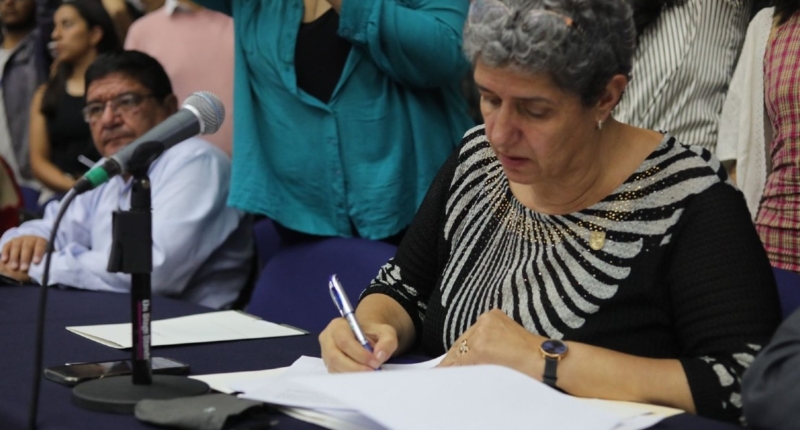The proposed HCTI Law Initiative has failed to include the academic community, which has voiced their concerns through a rogatory letter outlining seven essential points that need to be discussed. The academic community feels that these points cannot be ignored and must be considered for the initiative to succeed. The dean of the Autonomous University of Querétaro (UAQ), Teresa García-Jasca, expressed disappointment that April 12 was set as the deadline for completion of discussions on the proposed HCTI Act, due to the lack of proper invitation to discuss the proposal. The proposal has been criticized for not being inclusive enough, and García-Jasca has called for open dialogue and a reform that responds to the country’s needs. Keywords relevant to the article’s content include HCTI Act, Academic Community, Proposed Law, Inclusive Governance, and CONASSET.
Proposed HCTI Law Fails to Include Academic Community, Says UAQ Dean
The proposed Humanities, Science, Technology, and Innovation (HCTI) Common Law is currently being discussed in the Congress of the Union; however, the academic community that generates knowledge and fosters innovation has been left out of the conversation. This lack of inclusion has been criticized by Teresa García, the dean of the Autonomous University of Querétaro (UAQ).
According to García, attempts have been made since 2019 to reform the HCTI Act through five different initiatives, but none of them have gained enough traction to progress. The most recent HCTI Law Initiative, which was announced by President Andrés Manuel López Obrador on December 13, 2022, is sponsored by the National Council for Science and Technology (CONASSET).
The academic community has indicated the need to discuss the proposal through seven basic points, which were outlined in a rogatory letter delivered on Jan. 11 to federal lawmakers. These points include the acknowledgment of the human right to the benefits of science, the establishment of clear foundations for coordination among the three levels of government to address problems related to the initiative, and an inclusive governance system with the participation of all sectors involved in scholarly activities.
The proposal also suggests adequate and appropriate funding for scientific work, the independence of public research centers, the listing of private higher education institutions to form part of the Scholars National Scheme, and respect for intellectual authorship, which is not considered in the HCTI Act.
The current proposal establishes a Conacyt-run body where the academic community does not participate in voting, which has been criticized as not inclusive enough. García stated that the academic community has made a proposal of seven essential points that must be discussed and not ignored. She added that they have spoken with different MPs and MPs to express their feelings and arguments about the proposal.
In summary, the proposed HCTI Law Initiative has failed to include the academic community, which has voiced their concerns through a rogatory letter outlining seven essential points that need to be discussed. The academic community feels that these points cannot be ignored and must be considered for the initiative to succeed.
UAQ Dean Criticizes Lack of Inclusion in HCTI Act Discussions
The dean of the Autonomous University of Querétaro (UAQ), Teresa García-Jasca, expressed disappointment that April 12 was set as the deadline for completion of discussions on the proposed Humanities, Science, Technology, and Innovation (HCTI) Common Law. This was based on the legislature’s vote last week to determine the methodology for open parliaments to discuss the HCTI Act. García-Jasca believes that the lack of proper invitation to discuss the proposal is to blame for this.
The academic community has been left out of the discussion on the proposed HCTI Law Initiative, which has been criticized for not being inclusive enough. García-Jasca has emphasized the need for open dialogue and for the reform to respond to the needs of the country.
In summary, the dean of UAQ has criticized the lack of inclusion of the academic community in discussions on the proposed HCTI Act, which has been given an April 12 deadline for completion. The proposal has been criticized for not being inclusive enough, and García-Jasca has called for open dialogue and a reform that responds to the country’s needs.
Don’t miss interesting posts on Famousbio
